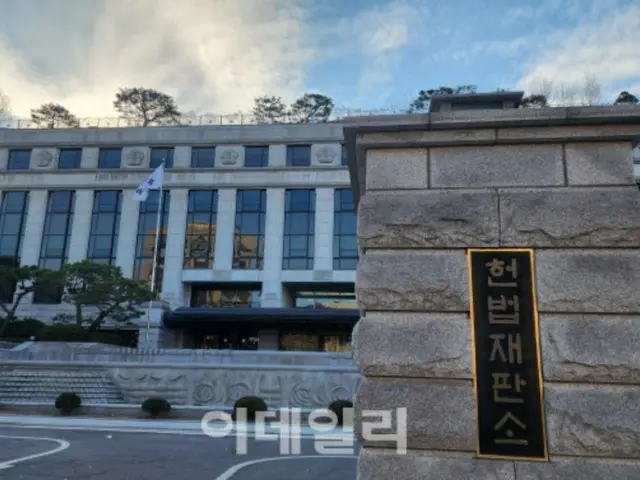However, due to Yoon's refusal to appear in court, the argument ended in just four minutes. The next argument is scheduled for the 16th. Yoon will reportedly decide whether to appear in court or not after consulting with his legal team.
A total of five arguments are scheduled to be held until February 4th. Yoon declared emergency martial law late at night on the 3rd of last month. Emergency martial law is a type of martial law stipulated in the Korean Constitution. It is used in times of emergency such as war or other incidents.
Martial law is issued by the President when necessary for military purposes or to maintain public order. The military takes control of administrative and judicial functions and is authorized to restrict freedom of speech, press, and association.
This was the first time such a declaration had been issued since democratization in 1987. Following the declaration, armed martial law soldiers broke the windows and stormed into the National Assembly building. In a scene reminiscent of the military junta, many protesters gathered in front of the National Assembly.
Citizens gathered, shouting slogans against martial law, and surrounding military vehicles, causing chaos. However, martial law can only be lifted if a majority of members of parliament request it, and the president must comply.
Immediately after the declaration, a plenary session of the National Assembly was held and all members in attendance voted in favor of lifting the state of emergency. Yoon lifted the state of emergency after just six hours.
Opposition parties including the Democratic Party of Korea have said that Yoon is "attempting to suspend the constitutional order and seizing power permanently."
The bill to impeach Yoon was submitted to the National Assembly, citing "attempts at rebellion to scare the people of Japan" and other violations of the Constitution. The bill was passed by 204 votes in favor and 85 against on the 14th of last month.
As a result, Yoon has been suspended from his duties, and Deputy Prime Minister for Economic Affairs and Minister of Strategy and Finance Choi Sang-mok is now acting as president. The Constitutional Court has six months to decide whether to impeach or reinstate Yoon.
If he is impeached, a presidential election will be held within 60 days. The Constitutional Court began the impeachment trial process on the 16th of last month. It coordinated witnesses, evidence, and trial schedules.
The first arguments were held on the 4th. The number of people who applied to attend the hearing online reached 48.6 times, indicating the high level of interest.
The ratio was considerably higher than the ratio of applicants to the number of applicants at the time of the oral argument in the impeachment trial (4.55 to 1). Meanwhile, prior to the first oral argument, Yoon's defense team announced that an arrest warrant had been issued for Yoon on suspicion of masterminding a civil war.
Yoon stated that he would not attend the hearing himself, citing concerns about his safety, and was not present in court on the 14th. As a result, the arguments that began at 2 p.m. that day were heard in just four minutes.
The trial ended in about 10 minutes. However, the attendance of the parties in an impeachment trial is not mandatory, and they cannot be forced to attend. In past cases, former presidents Roh Moo-hyun and Park
Neither Ms. Park Geun-hye nor her husband attended any of the impeachment hearings. The next hearing is scheduled for the 16th, when the full-scale sorting of the issues will begin. Ms. Yoon's lawyer said, "Once the security issue is resolved,
"The president plans to appear at any time," the statement said, but if Yoon again refuses to appear, his legal team will appear in court and the proceedings will proceed.
On the other hand, Yoon's side argued that one of the judges in charge of the trial was a member of the legal committee made up of progressive judges.
They pointed out that the judge had served as chairman of the Uri Law Research Group, a legal research group, and took issue with his political ideology. They argued that "a fair trial cannot be expected," and filed a motion to recuse the judge from the trial.
"The prevailing view in legal circles is that in important cases such as impeachment trials, judges discuss the matter without being bound by political orientation in order to reach a unanimous decision," the state news agency Yonhap News Agency reported.
"The impeachment trial of former President Hye-seok unanimously decided to dismiss him," he explained. However, the Constitutional Court rejected the "motion to evade" during arguments on the 14th.
2025/01/15 09:30 KST
Copyrights(C)wowkorea.jp 5

